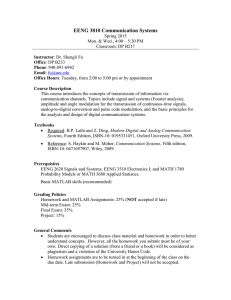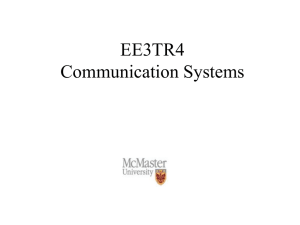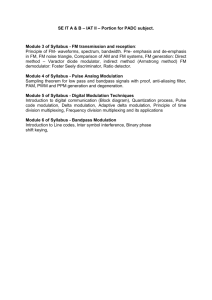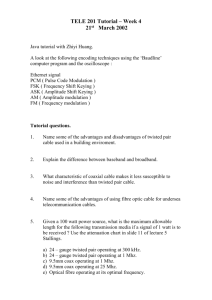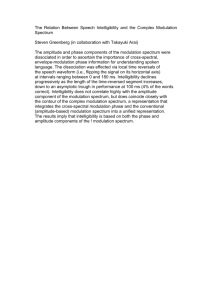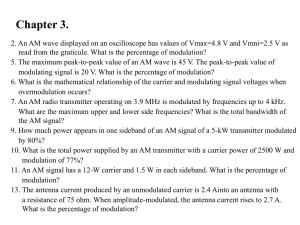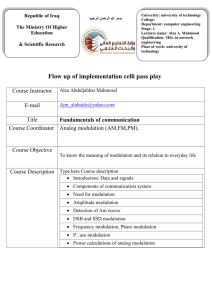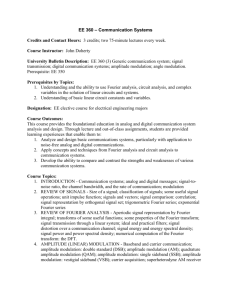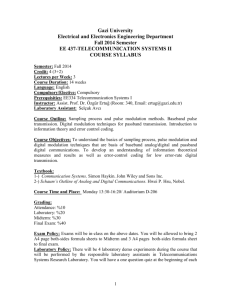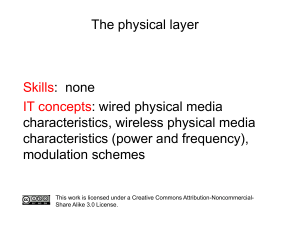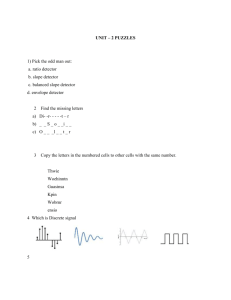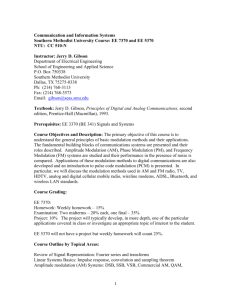ECE 5234 Communicati..
advertisement
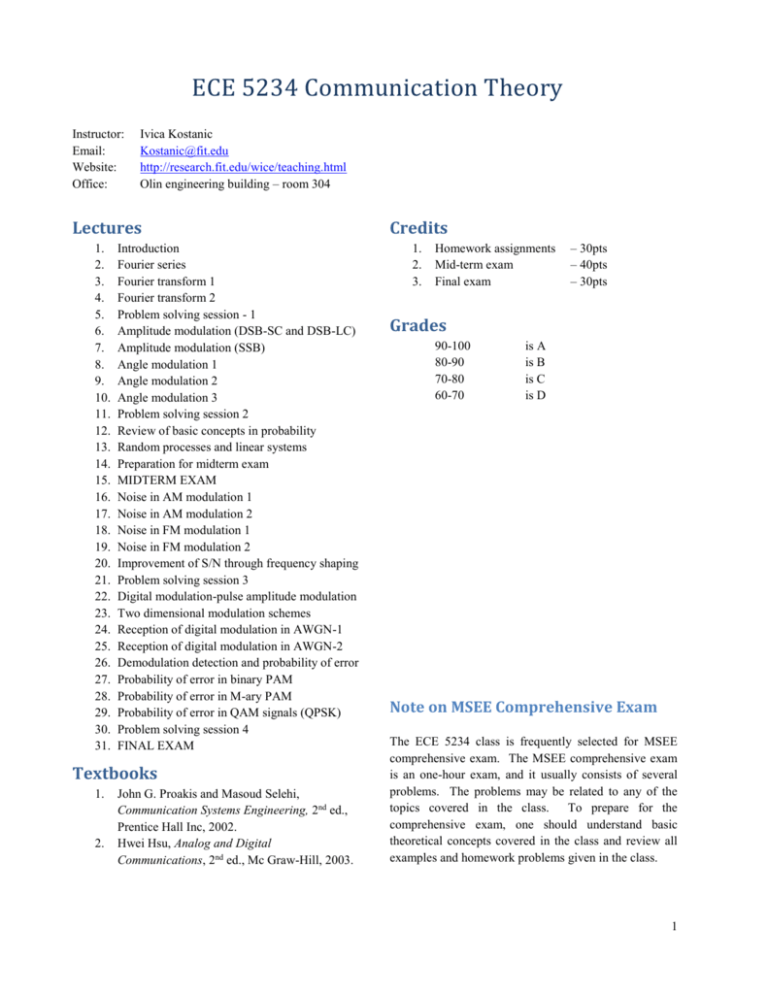
ECE 5234 Communication Theory Instructor: Email: Website: Office: Ivica Kostanic Kostanic@fit.edu http://research.fit.edu/wice/teaching.html Olin engineering building – room 304 Lectures 1. 2. 3. 4. 5. 6. 7. 8. 9. 10. 11. 12. 13. 14. 15. 16. 17. 18. 19. 20. 21. 22. 23. 24. 25. 26. 27. 28. 29. 30. 31. Introduction Fourier series Fourier transform 1 Fourier transform 2 Problem solving session - 1 Amplitude modulation (DSB-SC and DSB-LC) Amplitude modulation (SSB) Angle modulation 1 Angle modulation 2 Angle modulation 3 Problem solving session 2 Review of basic concepts in probability Random processes and linear systems Preparation for midterm exam MIDTERM EXAM Noise in AM modulation 1 Noise in AM modulation 2 Noise in FM modulation 1 Noise in FM modulation 2 Improvement of S/N through frequency shaping Problem solving session 3 Digital modulation-pulse amplitude modulation Two dimensional modulation schemes Reception of digital modulation in AWGN-1 Reception of digital modulation in AWGN-2 Demodulation detection and probability of error Probability of error in binary PAM Probability of error in M-ary PAM Probability of error in QAM signals (QPSK) Problem solving session 4 FINAL EXAM Textbooks 1. 2. John G. Proakis and Masoud Selehi, Communication Systems Engineering, 2nd ed., Prentice Hall Inc, 2002. Hwei Hsu, Analog and Digital Communications, 2nd ed., Mc Graw-Hill, 2003. Credits 1. 2. 3. Homework assignments Mid-term exam Final exam – 30pts – 40pts – 30pts Grades 90-100 80-90 70-80 60-70 is A is B is C is D Note on MSEE Comprehensive Exam The ECE 5234 class is frequently selected for MSEE comprehensive exam. The MSEE comprehensive exam is an one-hour exam, and it usually consists of several problems. The problems may be related to any of the topics covered in the class. To prepare for the comprehensive exam, one should understand basic theoretical concepts covered in the class and review all examples and homework problems given in the class. 1
